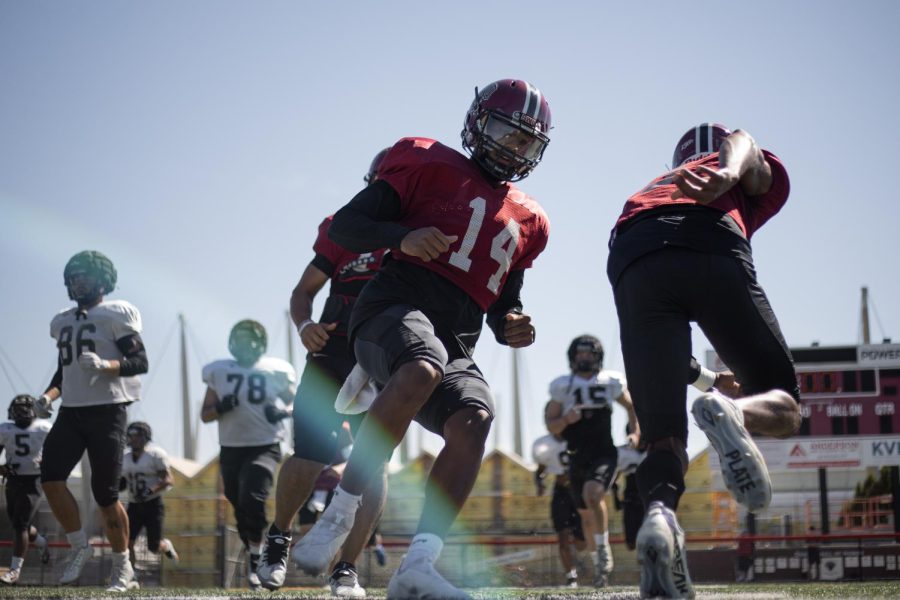Sports and nutritional self-care at CWU
February 15, 2023
Whether it’s dunking basketballs into hoops or cookies into milk, CWU athletes know that in the on and offseason they need to be conscious of their nutrition.
Calories, carbohydrates, protein and produce are all part of our nutritional intake. CWU has trainers, students and athletes who wish to highlight a healthy lifestyle for each student, depending on their individual needs.
Marissa Miles is a graduate staffing and teaching assistant in the field of sports nutrition. Since eating is a very personal action, Miles believes there are no bad foods.
“All foods fit, within moderation, and balanced throughout the diet,” Miles said.
According to Miles, she offers nutritional advice depending on the sport each person is playing and what role they function in.
“I break it up whether it’s endurance-based or strength-based,” Miles said. “As well as what goal they’re aiming for.”
In-season versus out-of-season times play a role in nutritional decisions as well.
“Body composition, gaining weight, losing weight. We don’t want to talk about that,” Miles said. “If we’re going to lose weight, we’re going to be in a calorie deficit. When we do that, we’re going to have less energy consumed and it may negatively impact performance.”
If anyone is interested in learning more about sports nutrition, Miles suggested taking NUTR 446 taught by Kelly Pritchett.
“It looks at energy systems, carbs, proteins, fats and then she kind of takes the remainder of the quarter and guides it with the current thing in sports nutrition,” Miles said.
According to Miles, while it is an upper-level class with prerequisites, it’s possible to reach out to Pritchett and see if non-nutrition and exercise majors can take the course.
Additionally, Miles cited helpful resources like the Nutrition Club and the exercise science major programs. For example, pure nutrition education involves student training while being overseen by two dieticians.
“Anybody that’s looking at losing weight, gaining weight, how to just eat healthy. They are available,” Miles said.
CWU football player Zach Matlock has recently started to dive into nutritional logistics over the past pre-season.
“I saw the results, especially when summer hit,” Matlock said. “I started going straight into bulking and protein-like lean meats. Good carbs for you like brown and white rice.”
For his playstyle and his body, Matlock said he focuses on high-protein foods and always gets a source of vegetables.
“Whether it be broccoli, asparagus, spinach, things like that,” Matlock said.
According to Matlock, nutrition is important year-round for each athlete but the off-season is a priority.
“Using the off-season is when you really get your time to focus on getting better nutritionally and physically,” Matlock said. “It’s the best time to do it. You don’t have to worry about practice time.”
With so many options, builds and lifestyles, Matlock said the most important piece of information is staying disciplined with what you decide for yourself.
“It’s kind of cliche, but trust the process,” Matlock said. “Your plan of [nutrition] and how you want your body to feel eating and how you want your body to feel.”
Resource box:
CWU Sports Nutrition Page: https://wildcatsports.com/sports/2018/10/2/sports-nutrition
CWU Nutrition Club Page: http://www.cwu.edu/~nutritionclub/
NUTR 446 Course: https://catalog.acalog.cwu.edu/preview_course_nopop.php?catoid=60&coid=137133

